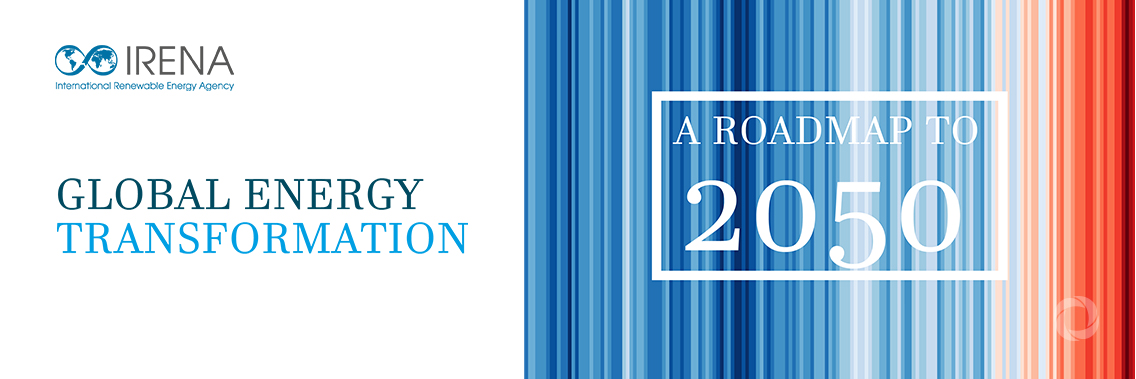As the urgency to take bold climate action grows, a new analysis by the International Renewable Energy Agency (IRENA) finds that scaling-up renewable energy combined with electrification could deliver more than three-quarters of the energy-related emission reductions needed to meet global climate goals.
According to the latest edition of IRENA’s Global Energy Transformation: A Roadmap to 2050, launched at the Berlin Energy Transition Dialogue, pathways to meet 86 percent of global power demand with renewable energy exist. Electricity would cover half of the global final energy mix. The global power supply would more than double over this period, with the bulk of it generated from renewable energy, mostly solar PV and wind.
“The race to secure a climate safe future has entered a decisive phase,” said IRENA Director-General Francesco La Camera. “Renewable energy is the most effective and readily-available solution for reversing the trend of rising CO2 emissions. A combination of renewable energy with deeper electrification can achieve 75 percent of the energy-related emissions reduction needed.”
An accelerated energy transition in line with the Roadmap 2050 would also save the global economy up to USD 160 trillion cumulatively over the next 30 years in avoided health costs, energy subsidies and climate damages. Every dollar spent on energy transition would pay off up to seven times. The global economy would grow by 2.5 percent in 2050. However, climate damages can lead to significant socio-economic losses.
“The shift towards renewables makes economic sense,” added Mr. La Camera. “By mid-century, the global economy would be larger, and jobs created in the energy sector would boost global employment by 0.2 percent. Policies to promote a just, fair and inclusive transition could maximise the benefits for different countries, regions and communities. This would also accelerate the achievement of affordable and universal energy access. The global energy transformation goes beyond a transformation of the energy sector. It is a transformation of our economies and societies.”
But the action is lagging, the report warns. While energy-related CO2 emissions continued to grow by over 1 percent annually on average in the last five years, emissions would need to decline by 70 percent below their current level by 2050 to meet global climate goals. This calls for a significant increase in national ambition and more aggressive renewable energy and climate targets.
IRENA’s roadmap recommends that national policy should focus on zero-carbon long-term strategies. It also highlights the need to boost and harness systemic innovation. This includes fostering smarter energy systems through digitalisation as well as the coupling of end-use sectors, particularly transport, and heating and cooling, via greater electrification, promoting decentralisation and designing flexible power grids.
Read and download the Global energy transformation: A roadmap to 2050 (2019 edition).
Original source: IRENA
Published on 09 April 2019

